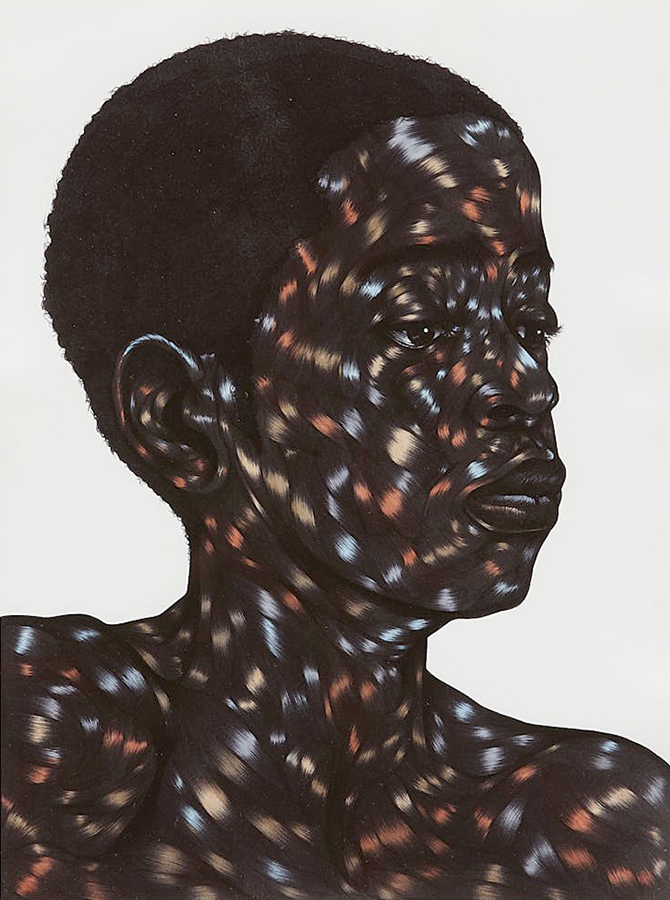Imagine my surprise, to be in a bookstore in New York in 2016 and find a new book of poetry by Larry Levis. An award-winning poet, Levis had been dead 20 years, but that accounted for only a tiny part of my amazement as I pulled the book off the shelf. Entitled “The Darkening Trapeze: Last Poems,” the book, as the back cover explained, was published by Levis’ friends, who had gotten into his papers and painstakingly put the volume together.
In a blurb, the poet Carolyn Forché expressed a similar sense of wonder at Levis’ reappearance: “Along with other friends, I enter ‘The Darkening Trapeze’ as if through a trapdoor, and I am there again, flying along the coast with all the windows down, traipsing through a snowy night with blankets over our heads after reading poems aloud. He is back, Levis is back, in one last book left behind as a gift, and I am filled with awe and gratitude.”
Exactly.
I knew Larry. He was my professor and mentor at the University of Missouri in the late 1970s. It was an interesting place to be for a Southern Baptist preacher’s kid who was serious about Christian discipleship. Though my dad was a liberal (they still existed in Southern Baptist life back then), my childhood was immersed in evangelical language -- “being lost” and “getting saved” and “meeting Jesus.”
My professors, of course, varied widely in their beliefs. Many seemed puzzled that a smart student would be a practicing Christian. Once, when I ran into a favorite professor on campus and told him I’d been to Holy Week services, he looked surprised.
“Really? I thought you’d given up on the opiate of the masses,” he said, jokingly. Sort of.
On the other end of the spectrum was Father Barth, brilliant Harvard alum, Jesuit priest and beloved professor of the Romantic poets. He didn’t proselytize (we were in a state school, after all), but God was everywhere -- in all that nature in the Romantic poetry and around us, but most of all in Father Barth himself. He wrote page-long responses to papers and signed them “Blessings -- Father B”; he treated students and his work with such respect, compassion and love that the Spirit shone through him.
My concentration was in creative writing, where I felt most caught between the simplistic language of my childhood faith and the world of contemporary poetry, which seems to eschew both the language and the faith. Of all my professors, Larry was the last one I ever expected to have an encounter with the risen Christ -- to “meet Jesus,” in the language of my Baptist upbringing.
James Dean had nothing on Larry in the cool department. Larry had a sort of Zapata look with his longish dark hair, heavy dark eyebrows and mustache, and sleepy-dog sexy eyes. He wore Levi’s, work shirts, L.L. Bean moccasins and well-worn sweaters, and he moved with slow, easy grace. He sounded like the mellow Californian he was. He’d say something very definitive about a poem you’d written, and after a pause, “But then, I don’t know. I just live here on this sad, green orb.” He drank at Club la Booche, the oldest, diviest bar in town, and listened to jazz at the Blue Note.
Larry was married to the poet Marcia Southwick (by Father Barth, I later learned), and I became the babysitter for their infant son. I was mesmerized by their house -- lots of natural light, hardwood floors, sparse furnishings, books everywhere, a framed poster of the Beatles in their office.
When they came home, the baby asleep upstairs, we would sit and talk about poems, sometimes mine. One night Marcia returned from a reading and Larry kissed her, then took a strand of her long, curly hair between his fingers and stretched it out into the air, gazing at her with adoration. Years later, I would recognize myself in the character Stingo in “Sophie’s Choice,” the witness in love with this beautiful, doomed couple.
When Larry and Marcia went to Iowa City on sabbatical, I rented the basement room in their house. After a relationship I was in fell apart, I moved away, and then years later, farther away, with my Baptist preacher husband. Before long, I was wrapped up in children and church, but sometimes I received dispatches from the world of poetry. Eventually, I heard that Larry and Marcia had divorced, then later a visiting poet at our university told me that Larry had died, at 49.
“I think he was living a pretty destructive life,” she said.
So yes, imagine my surprise, years later, to find a new book of poetry by Larry.
But imagine my further surprise to find in its pages a poem entitled “If He Came & Diminished Me & Mapped My Way.”
Immediately, I wonder: “Who is this He?”
And then the poem begins:
Who was there in the uncountable stars, in the distance,
And in the cold glittering?
Who leaned with the wind against the trees all day,
And who slept in the swing’s empty stillness under them?
The poem continues with these and other questions that could have come from the book of Job.
“Sounds to me like he’s talking about God,” I’m thinking.
Then he tells a story about hiking, losing the trail, and then:
For a while, walked in the Company of Hallucination & Terror.
Later, he reflects on that experience:
I understood I was completely lost, & then
How someone so thin I could have passed my hand through him
Walked beside me there ...
. . . . . . . . . . . . . . . . . . . . . . .
… his ribs depicted famine, & ... his steps beside me
Were effortless, were like air gliding through air.
And then:
… the trail appeared again under my feet. …
And I’m thinking, “Oh, my God, Larry Levis met the risen Christ!”
I am amazed at how much the description sounds like the resurrection appearances in the Gospels, and how much the language resonates with the Christian language I grew up with: “I have come to seek and to save the lost”; “I once was lost, but now I’m found.”
Larry knows he’s too cool for this, and instead says:
What I felt was diminishment, embarrassment. ...
But he also recognizes Jesus’ identification with poor people:
He must be starving by now, his face multiplying
To become the haunted faces of others in the streets,
Where to walk at night is to be flayed alive beneath
The freezing rain. ...
Sounds like Hopkins’ “Christ plays in ten thousand places.”
What does not sound like the Christian language of my childhood is the poem’s ending. Larry and his dealer -- “a Jamaican named John Donne” (!) -- gaze out at the rain, and Larry seems to be musing on how to understand his encounter (as so many of us have with Jesus). Nothing much seems to have changed, and so
... both of Us would avert our Faces from His Face.”
Lord knows, Larry taught his students to avoid easy endings, so what am I to make of this one? In the Christianity of my childhood, getting “saved” through an encounter with the risen Christ meant getting clean and sober; clearly, this did not happen for Larry. Reportedly, drug use likely contributed to the heart attack that killed him. He seems to have chosen the way of death over the abundant life of Christ.
Larry’s ex-wife Marcia has a poem that seems to speak to the same issue. In “A Star Is Born in the Eagle Nebula,” a poem she wrote in 1999 and dedicated to Larry, she gives a long list of happenings in the world, as though sharing news from the day’s paper. At one point, she says, “you aren't missing much” but eventually notes that four girls
in a photo appear to be tied, as if by invisible threads, to five
soap bubbles floating along the street against the black wall
of the Park Avenue underpass. Nothing earthshattering. The girls
are simply there. ...
… That’s the plot. A life. Any life. …
And on the next page of the paper, that day’s Charlie Brown cartoon:
… He’s saying, “Sometimes I lie awake
at night & ask, Does anyone remember me?”
Then a voice comes out of the dark -- “Sure, Frank, we remember you.”
Marcia, like God, seems to be saying, “Choose life!” Or in this case, “I wish you had chosen life.”
I’m curious whether the world will remember Larry. I confess, it’s partly out of pride -- “I was taught by the great Larry Levis.”
But how sweet the story of Jesus remembering him. Maybe Jesus still likes to hang out with sinners, and thank God for that. When Larry and his dealer “avert our Faces from His Face,” yes, they are turning away, but the capital letters suggest that they and their very Faces have been made holy, just as His Face is holy.
They avert their faces in humility -- diminishment -- as if to say, “Lord, have mercy on me, a sinner.” And Jesus does have mercy on all us sinners. I trust that when Larry met him face to face after his early death, there was a glad reunion -- “Hey, I remember you from the trail!”
But what do I know? I just live here on this sad, green orb.







